

Welcome to the 1999 Linux Journal Readers' Choice Awards, brought to you by the same people who brought you the Editors' Choice Awards last month (remarkable). The Linux scene has exploded since this time last year, with more software than we could keep up with. Hence, omissions were so frequent, the poll was almost a comedy of errors, but fortunately no spreadsheets showed up listed in the games section. Over 8,000 people voted, more than twice last year's turnout. It was fun, and the results were even different from last year! Worth noting is that Emacs received numerous write-ins in nearly all of the categories. Apparently, it does more than we thought. Included are some voter write-ins and comments (in italics) for your delectation.

“Better than all the rest.”
Debian GNU/Linux with 27.3% scores a 21-vote upset over last year's winner SuSE which got 27.0%, while Red Hat falls to number three by about 200 votes, with 23.6%. This victory for Debian GNU/Linux is sure to warm the hearts of free-source enthusiasts everywhere. In other news, Slackware is still alive at 5.7%, Mandrake and Caldera received 7.1% and 6.1% respectively, and the others have their followers, though not many (no other distribution scored 1%).

“I prefer console mode.”
“GNOME with Enlightenment in the future, KDE now.”
The K Desktop Environment (technically speaking, the K Window Manager) wins again with 36.6% of the vote, far ahead of its nearest competitors WindowMaker and Enlightenment, which gathered 17.8% and 16.1%, respectively. Other niche managers have devoted followings, but it appears as if the days of FVWM have wound down and a new era has begun—that of the desktop environment. Many window managers added and improved theme support, making it easier to change managers and aesthetics. The windowing diversity on Linux makes it easy to forget that other operating systems don't offer the freedom to choose in this area.
“mpg123 lets me play Pink Floyd; cthugha lets me see it...”
mpg123 garners 35% of the vote to prove the overwhelming popularity of the mpeg format which is so efficient, many lobbyists tried to have it outlawed. Fortunately it's still legal, and we're having a lot of fun with it. RealAudio is number two with 20%, while paranoia (to rip CDs into mpegs) with 10% takes third place. XMMS/X11Amp received several write-in votes.
“Something wants to make me vote for Logo... but I'll spare you. :)”
The old UNIX standard—the closest thing we have to a cross-platform assembler—wins nearly half the vote at 49.4%. We'll have to split C and C++ next year; we received countless “I hate C++” comments, a sentiment shared by nearly everyone who voted. Perl had an excellent showing, with 20.6% of the vote, compared to the up-and-coming Python which scored 4%. At 9.5%, Java appears to have become rather popular, and a concerted effort from PHP enthusiasts managed to score it 4.6%. Emacs (meaning ELisp, probably) received a large number of write-ins. Doesn't anyone use assembly code anymore?
“vim vim vim vim vim vim vim vim vim vim vim vim vim vim.”
“Emacs is the true path to Nirvana!”
Yet again, vi scores a large victory with 31.1% of the votes, over StarOffice and Emacs which had 15.2% and 14.9%. XEmacs, last year's runner-up, appears to be less popular this year, taking 10.4%. Popular with old UNIX hacks, vi is gaining a large following in the GNU generation. “Ack! Are you still using vi?” I once asked. “No, man. I learned vi.” Vintage software—the next cool thing.

“Long live Cmdr Taco!”
“Next to Linux Journal? Slashdot.”
“Man are the ballots going to be stuffed on this one :-)”
Was there ever any doubt? It's not an exclusively Linux page, but Slashdot takes 41.3% of the vote. Freshmeat.net is second with 16.6%, while none of the others did very well at all. Discouraging news for Linux gamers: Happy Penguin (The Linux Game Tome) made only 0.8%.
“conch”
“You know, bash could also stand for best of all shells. :^)”
The Bourne Again Shell gathered a monstrous 77.8% of the vote, by far on of the bigger victories in this year's poll. tcsh managed 10.5%, and ksh got 5.2%. There would probably be a different distribution between shells one likes to use and shells one likes to write scripts for, but it's clear that bash is where it's at. Shells have cool names like ash, bash, zsh (to keep in mind when naming your children).
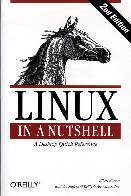
“What a stupid name, Linux Secrets! What secrets can software whose source code is available on the Internet have?”
“/usr/doc is your friend. ;)”
Scoring a seven-vote victory, Linux in a Nutshell by Ellen Siever, et al. won over Matt Welsh's classic Running Linux, 19.0% to 18.8%. Last year's winner, Network Administration Guide, was third with 11.8% of the vote. There are many books for beginners, but these were selected as the best. Truly there is no shortage of Linux books, though I wonder how the Linux Documentation Project is coming along. It received many write-ins but not quite enough to make a showing, and technically speaking it's not a book. Still, the enthusiastic support for LDP shows where Linux users' loyalties lie.
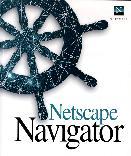
“Netscape, but it's a cope sort of thing.”
Five people “accidentally” wrote in Internet Explorer—they officially lose. Netscape, deemed the “lesser of the evils” by voters, wins with 86.7%. Netscape may sometimes leak memory like an NT box, but let us never forget what it did for the Open Source movement (that guy Raymond, Linus Pauling, et al.). Lynx came in second with 8.3%, and the K File Manager was third with 4.4% (good job, guys; this one is fast for a graphics browser). Mnemonic appears to be completely dead, and Arena is not so successful right now either. Hopefully, Mozilla will stand on its own by next year. Ah, who uses the Web anyway?
“Kernel info is fun for the whole family.”
“The one with Marjorie.”
“upFRONT is my high-level Slashdot: what Slashdot won't tell, I can read from upFRONT. It has things to check out and news to talk about.”
“Kernel Korner” is the perennial favorite this year with 26.9% of the vote, followed by “Best of Technical Support” which had 21.2%. This probably says something about LJ readers. David Bandel's “Focus on Software”, each month a wild assortment of rarities from the software world, scored number three with 16.3%. Reuven Lerner's consistently popular “At the Forge” was a close fourth at 13.1%, and received many glowing comments. “Linux Means Business” had 11.1%, and the new “upFRONT” managed 4.1%.
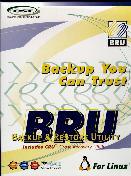
“Backup? Who needs backup? Maybe it sounds crazy, that's okay, it is.”
BRU, with 35.5% of the vote, comes in ahead of its closest rivals Amanda which had 15.3% and Lonetar which had 10.8%. Worth noting were the number of write-ins advocating tar, a simple solution you can insert easily into cron. While BRU and Lonetar are proprietary, Amanda is freely available, in case you actually want to back something up—but Linux is so stable!

“Slashdot!”
Cyclades, with 37.7%, seems to be more popular than its competitors Digi International with 15.8% and Boca with 10.0%. Cyclades has a cool name, but do you pronounce it like the island chain?

“Who needs databases?”
MySQL, the free database from Finland and Sweden, scores big points with 42.4%, compared to PostgreSQL with 19.5% and Oracle with 15.2%. The Berkeley Database, which is embedded in practically everything, scored only 1.4%, which is odd. Still, it stands to reason that MySQL would be a favorite choice of the Linux community, considering its origins and relatively free license. Someone wrote in M$ SQL, as a joke... I think.
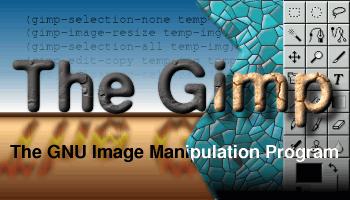
“I hope to earn my black-belt in script-fu some day.”
In an amazing upset victory... oh, wait. The GIMP wins again this year, with 76.8% of the vote. xv and CorelDraw each got 8.1% of the votes (though xv was ahead by 4 votes). The GIMP blew away everything years ago; now it is polished and beautiful. You can do anything with it, even if you're not a graphics expert. Then, you can use SatanPaint (which scored 0.1%) to convert your drawings into C include files. It is interesting that Linux has such a fantastic graphics package, while audio seems to have been largely neglected. Are Linux types visually inclined? Apparently so, and projects like the GIMP, GNOME, Enlightenment, KDE and the themes trend are all evidence, as well as the new wave of screen savers and demos.
“Linux has a demo scene? I have to check this out!”
Even though we can't take over every processor cycle and sync our routines to raster positions, Linux finally has demos, lots of them. It is no surprise that State of Mind would win for this year, but what is a surprise is the third-place finisher, BB by AA (Big Brother, the aalib ASCII demo), which was not included but had many write-ins. Second place went to XDemo8 by Lame Over. Technically speaking, most write-in votes went for “What is a demo?” or some variant thereof. Someone wrote in linus.au; hmmm. Truly we have a cool scene, small though it may be.
“Pine is evil.”
Pine has displaced last year's winner Elm with a 41.4% vote, compared to the second-place finisher Netscape Communicator with 32.2% and the up-and-coming Mutt which had 14.7%. What happened to Elm? It fell to number four, with 6.8% of the vote. Several variants of Emacs mailers received numerous write-ins. A growing Pine/Pico recovery and support community will probably lead Mutt to greater popularity next year; in any event, it has colors and that's cool.
“Emacs+gcc+gdb.”
What would development be without a compiler? The GNU C Compiler wins with 65.8% of the vote, while the Experimental GNU Compiler System took 20.9%. Now that the two are reconciled and together again, that would be an 86.7% collective. The recently delivered Metrowerks CodeWarrior scored 5.9%, a number which might be higher if it only ran on more distributions. The free Code Crusader was fourth with 2.7%, GNUPro Toolkit was fifth with 2.5%. The Linux standard, Emacs/gcc/make or some variant thereof, was the most common comment. Where would we be without GNU, or would we be at all without GNU?
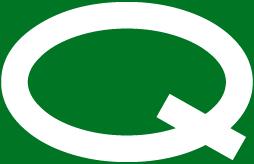
“Old hackers never die, young ones do.”
Quake2, the sequel to Quake (did you know?), is the favorite Linux game with 23.1% of the vote. Civilization: Call to Power, the excellent port from Loki (a savior of sorts for Linux gamers) is second with 13.9%, while XBill is dangerously popular at 8.4% (beating out the original Quake by 0.1%). Gruesome violence is inexplicably popular, but in other news, the hacker classic NetHack managed 5.6%, ahead of FreeCiv which had 4.3%, a good showing for our free games considering the number of entrants in this category.
“Abaci even have a n33t plural form! The abacus is the only Y2K compliant computer known to humanity!”
Compliant though it may be, the abacus lost to the Intel x86 which scored 82.4%, ahead of Alpha with 6.8% and PPC with 4.8%. There were hundreds of write-ins for AMD, and almost no one is under any delusions that Intel makes a better chip. However, the x86 is, technically speaking, for the most part Intel's fault; AMD is a clone, better than the original (as so many people wrote) but still a clone. The new IA-64 looks like it may actually be well-designed, and who knows what Transmeta (known more for hiring Linus than anything else) will come up with? Nowhere is the QWERTY syndrome stronger than in computers, but maybe we can at least get a better chip set sometime soon; otherwise, I'll see you at Abacus World Expo.